In this article, we will look briefly at the Azure Cosmos DB service and how you can query JSON documents to store, retrieve and process data using the SQL Application Programming Interface (API).
Read more »

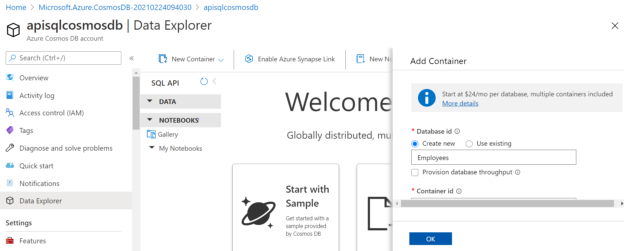
In this article, we will look briefly at the Azure Cosmos DB service and how you can query JSON documents to store, retrieve and process data using the SQL Application Programming Interface (API).
Read more »

In this article, I am going to write about the various ways we can work with JSON data in Python. JSON stands for Java Script Object Notation and has become one of the most important data formats to store and transfer data across various systems. This is due to its easy-to-understand structure and also because it is very lightweight. You can easily write simple and nested data structures using JSON and it can be read by programs as well. In my opinion, JSON is much more human-readable as compared to XML, although both are used to store and transfer data. In modern web applications, by default JSON is being used to transfer information.
Read more »
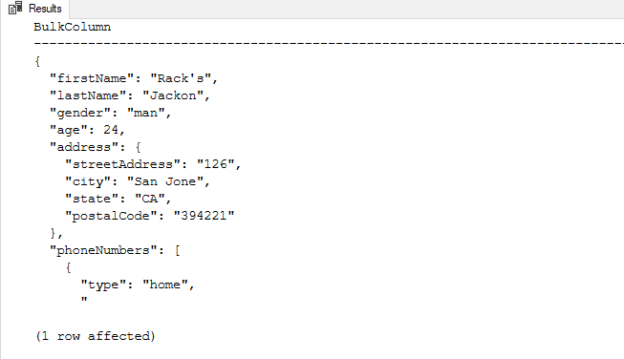
In this article, we will learn how to parse and query JSON in SQL Server with the help of the OPENJSON function. Firstly, we will briefly look at the data structure of the JSON and then we will learn details of the parsing and querying JSON data using the OPENJSON function.
Read more »
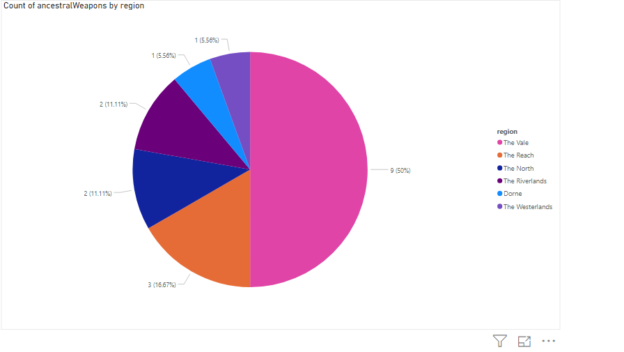
In this article, you will see how to import data from JSON files and Power BI Rest API into the Power BI environment.
Read more »
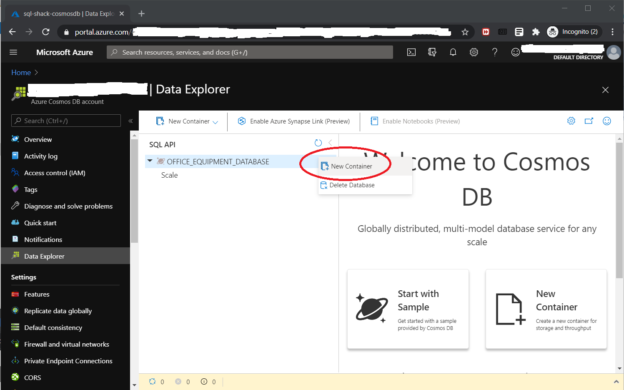
Microsoft Azure offers hundreds of cloud products, with more on the way. In the database space, Microsoft offers Azure Cosmos DB, a NoSQL database product. We can build Java, .Net, etc. applications around Cosmos DB resources. To extend this capability, this article will show how to query Cosmos DB directly from SQL Server.
Read more »
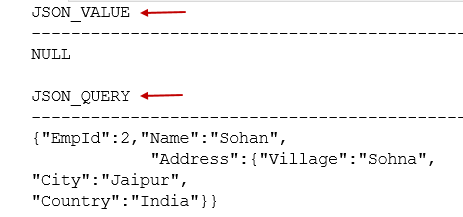
In this article, we will explore JSON_QUERY() functions in SQL Server to extract JSON objects and array from the JSON Data.
Read more »
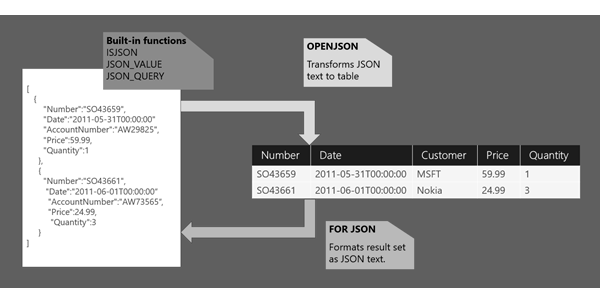
In this article, we will explore JSON_VALUE() function in SQL Server to extract scalar values from JSON data.
Read more »

This article explores JSON_MODIFY() function to modify JSON Data in the SQL Server.
Read more »
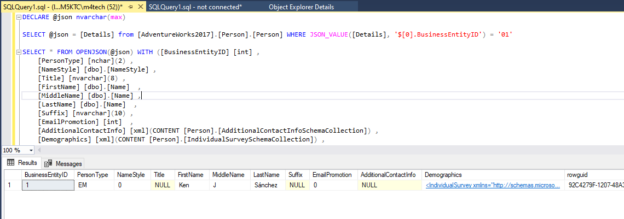
In this article, we will explain what JSON is, what are the SQL Server JSON functions introduced in 2016, how to index JSON values, and how to import JSON data into SQL tables.
Read more »
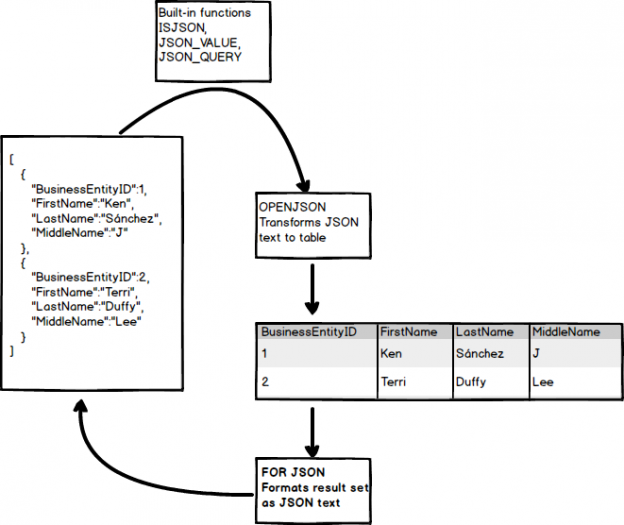
This article explores the process of JSON data import in the SQL Server table using T-SQL and SSIS.
Read more »
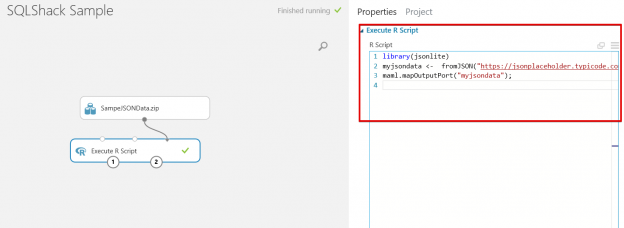
Azure Machine Learning (also known as Azure ML) is cloud-based machine learning solution of Microsoft. Microsoft Azure Machine Learning is a fully-managed cloud-based service that provides the ability to create and train predictive analytic solutions. Another advantage of Azure ML is that you can access and easily make changes anywhere in machine learning models with help of Microsoft Azure Machine Learning Studio.
Read more »
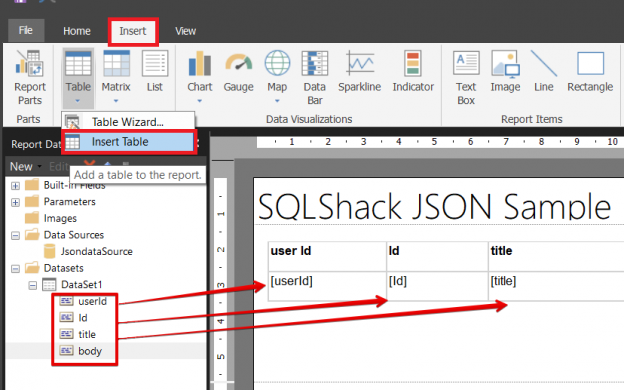
In this article, we will explore the concept of using JSON data in SQL Server Reporting Services (SSRS). This usage concept will include a different approach than the usual methodologies because we will take advantage of SQL Server R service support.
JSON is an abbreviation for JavaScriptObjectNotation. The main purpose of JSON data was to provide data transfer between server and web applications for JavaScript but today’s JSON is the most popular data interchange format. JSON offers two advantages to us. These are; light-weight text based format easily readable by humans. Currently, JSON is not only used in JavaScript applications, it is also used in all popular software programing languages like JavaScript, C++, C#, Perl, Java, Python, Php etc.
Read more »
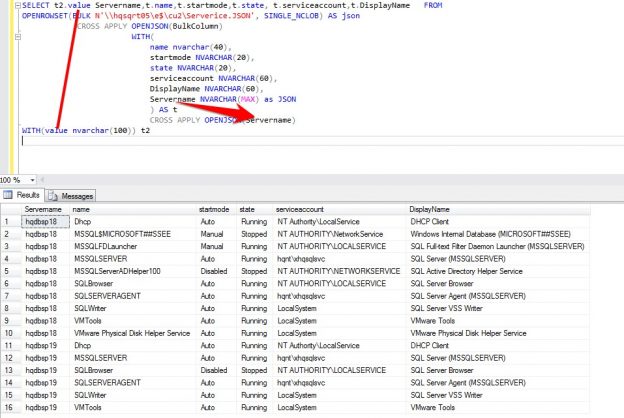
This article discusses a simple solution of how to monitor SQL service availability across multiple servers and reporting. To build this I’ll use SQL Server with simple PowerShell script and cmdlets which generate JSON data and displays results in HTML
Read more »
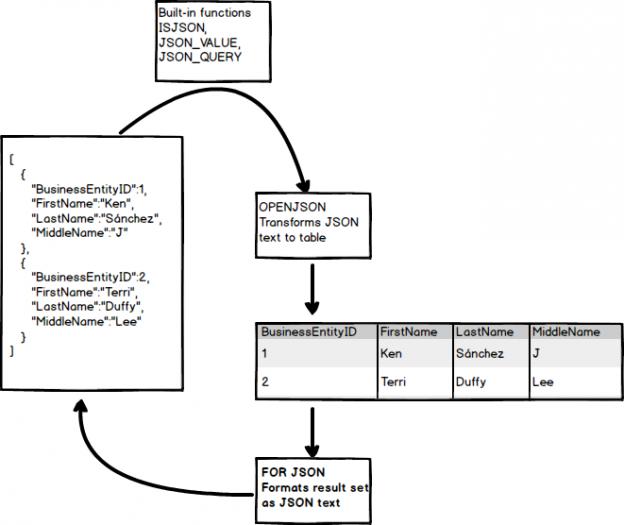
JSON is an abbreviation for JavaScript Object Notation. JSON is very popular and currently the most commonly used data exchange format. Most modern web and mobile services return information formatted as JSON text, all database web services, web browsers (Firefox, Internet Explorer) return results formatted as JSON text or accept data formatted as JSON. Since external systems format information as JSON text, JSON is also stored in SQL Server 2016 as text. You can use standard NVARCHAR columns to store JSON data in SQL Server 2016.
Read more »

With the introduction of SQL Server 2016, Microsoft introduced many new features which had taken SQL Server another step forward and they made sure that it stands in front among many major Relational Database Systems.
One such feature which has been lacking but desperately required was the native support towards JSON.
Read more »
In my article, Warehousing JSON Formatted Data in SQL Server 2016, we had a look at available T-SQL options for converting JSON data into rows and columns for the purposes of populating a SQL Server based data warehouse. The increased popularity of JSON in modern web applications may create a requirement for data teams to expose some of their data to client applications (i.e. reporting tools, web services etc.) in a JSON format. In this article we take a look at how such a requirement can be implemented by data teams using SQL Server 2016 FOR JSON clause
Read more »
In this article, I continue to review the exciting features available in SQL Server 2016. One such feature is the long awaited T-SQL support for JSON formatted data. In this article we take a look at how JSON support will impact data warehouse solutions.
Read more »© Quest Software Inc. ALL RIGHTS RESERVED. | GDPR | Terms of Use | Privacy